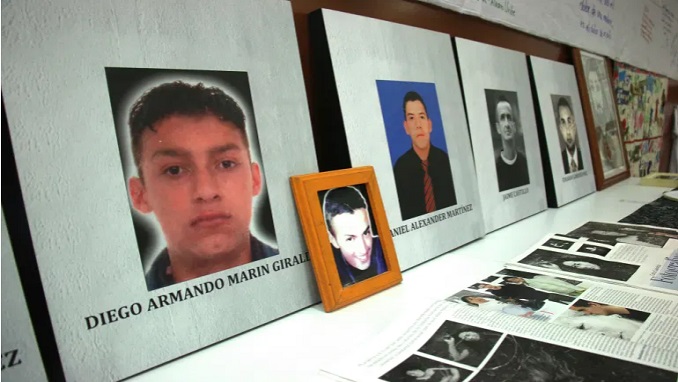United Nations’ human rights body called on the Colombian government to improve protection of human rights activists and civilians, be more present in remote, poor areas, and fully implement a peace deal with FARC rebels to curb violence, MercoPress reports.
The murders of activists and mass killings have made President Ivan Duque the target of frequent criticism by the international community and advocacy groups. His government largely blames the violence on drug trafficking.
The UN’s Office of the High Commissioner for Human Rights tallied 133 murders of activists and community leaders last year, up 25 from the year before. The government said on Monday it had recorded just 66, but that 63 others were being investigated.
The full implementation of a 2016 peace deal with the Revolutionary Armed Forces of Colombia (FARC) rebels, which initially led to a reduction in violence, is key to stemming the violence, the UN body said.
“The most important thing is to put the peace deal in the center of the government’s response, reinforcing the mechanisms created by the deal” for this situation, Juliette de Rivero, the U.N. office’s Colombia representative, said in a virtual press conference.
The 2016 accord saw some 13,000 FARC members demobilize and the group become a legal political party. The government must also dismantle armed groups including the still-active ELN rebels, former FARC fighters who reject the peace deal and crime gangs run by ex-paramilitaries, which are responsible for killing activists who resist them.
The Special Peace Jurisdiction (JEP), a court set up by the 2016 peace deal, is trying atrocities related to more than 50 years of armed conflict in Colombia. While reports of extrajudicial killings go back decades, the JEP has found that these cases peaked between 2002 and 2008, during the administration of former President Alvaro Uribe.
The findings contradicted a 2018 report released by the Attorney General’s Office that found a total of 2,248 cases of extrajudicial killing committed between 1988 and 2014.
Human rights groups have argued for years that the practice of military members killing and falsely representing civilians as enemy combatants was more widely spread than the Colombian government acknowledged.
“We’re glad that the JEP has recognised the magnitude of this situation, but we are also concerned that the Attorney General’s Office has concealed more than two-thirds of crimes and their perpetrators,” said Alberto Yepes, a lawyer with the Colombia-United States-Europe Coordination (CCEEU), a coalition representing 281 rights groups.
The CCEEU reported at least 5,763 cases between 2002 to 2010 to the JEP last year. A 2018 report, compiled with official sources and independent research, estimated that more than 10,000 civilians were murdered during this same period.
Human rights groups have called on Uribe to appear before the JEP. Former President Juan Manuel Santos, Uribe’s minister of defence from 2006 to 2009, is also being urged to testify. Santos received a Nobel Peace Prize for facilitating the 2016 peace deal.
In a Twitter post last week, Uribe disputed the court findings and alleged the court intended to damage his reputation. He also defended himself against accusations that blamed his heavy-handed security policies for the surge in killings during his presidency.
“No military person can say they have ever received a bad example or improper insinuations from me,” the post read.
